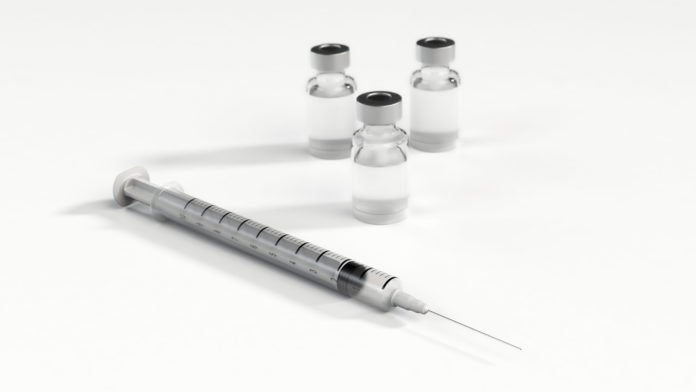A new HIV vaccine that aims to give healthy people immunity from HIV infection has cleared its phase I clinical trial, and could recruit 600 HIV-negative volunteers across North America for its phase II trial as early as fall 2017.
The vaccine, called SAV001, uses a killed whole-virus approach to trigger antibody production after vaccination, educating the immune system to recognize and destroy HIV if it encounters it again. The researchers hope that these antibodies will be enough to prevent HIV infection.
What do we already know about the vaccine?
Developed at Western University in an effort led by virologist Chil-Yong Kang, SAV001 is the first whole-virus HIV vaccine to be approved for human testing by the US Food and Drug Administration. It uses both chemicals and radiation to kill the virus before injection.
Unlike other HIV vaccines that are also in clinical trials, SAV001 uses killed whole HIV-1, as opposed to a fragment of the virus. This approach has been successfully used against polio, hepatitis A, and the flu, amongst others. SAV001 is also genetically modified, replacing some of the original HIV genes with honeybee genes to make it less infectious.
In the phase I trial, SAV001 was given to 33 HIV-positive participants, and showed that the vaccine does not cause side effects. It also triggered increased production of anti-HIV antibodies that recognized multiple strains of HIV, and didn’t show any signs that the deactivated virus had become active after injection.
Although whole-virus vaccines are nothing new, some scientists question whether the HIV virus can be fully neutralized. Others wonder whether effective neutralization would change the virus in a way that would make the vaccine ineffective at preventing HIV infection. These are questions that can only be answered in clinical trials.
What’s next?
SAV001 is being tested in partnership with Sumagen Canada, the Canadian branch of Korean Sumagen Co. Ltd. which holds the patent and will produce the vaccine for the trials. The phase II trial will recruit 600 HIV-negative participants: 300 volunteers from the general population, and 300 from high risk groups, such as sex workers and people living with an HIV-positive partner.
Kang’s team will be looking for whether these healthy participants produce anti-HIV antibodies, and also whether receiving the vaccine reduced their risk of HIV infection.
If successful, phase III will recruit 6,000 participants worldwide, and will be the most important test of the vaccine’s effectiveness.
“If we can show that this vaccine is effective in preventing people from contracting HIV, we can stop the AIDS epidemic,” says Kang, “and that would be tremendous.”








































